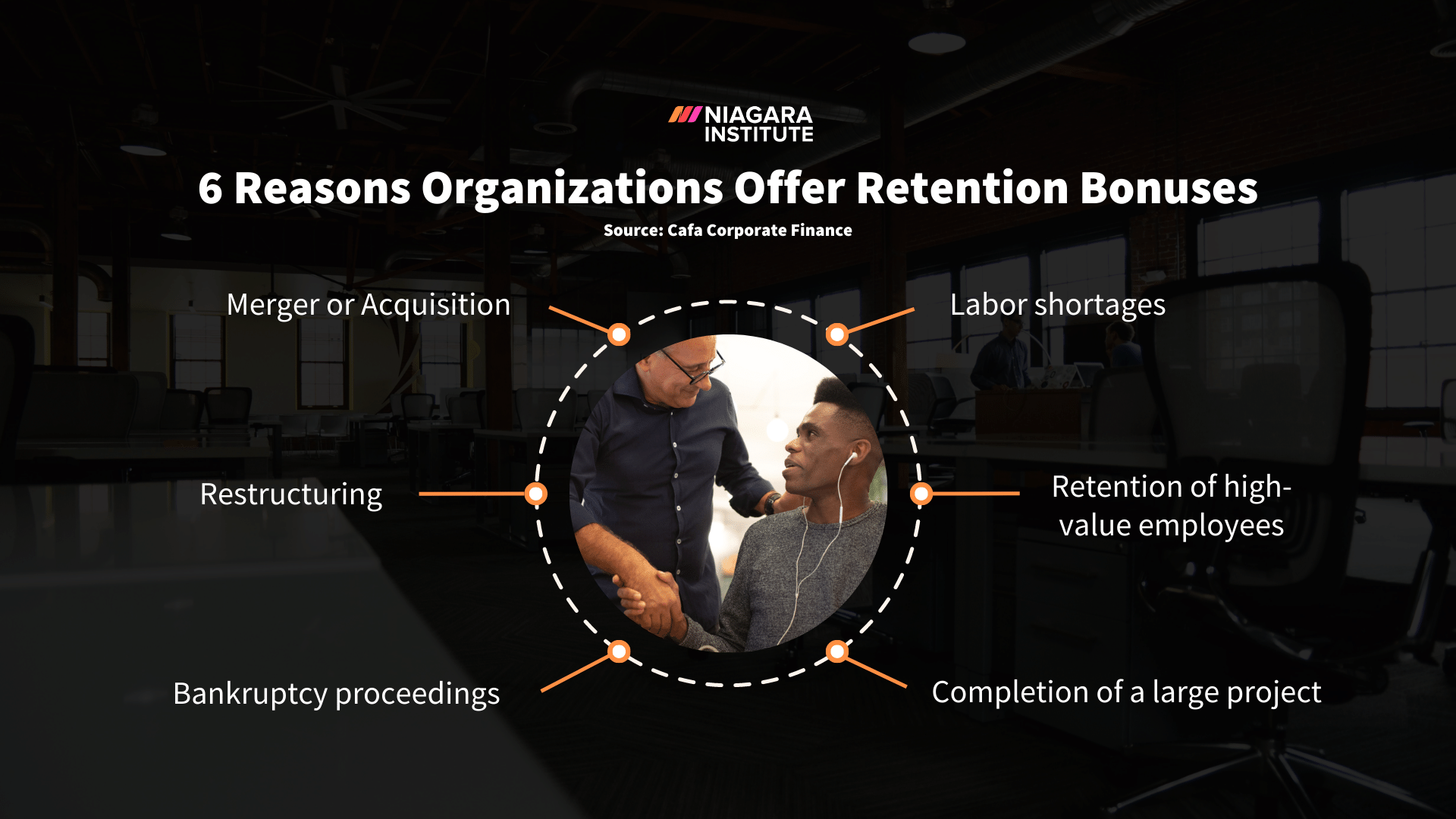6 min read
The FAQs of the 9-Box Talent Review
If there’s one thing those in leadership, human resources, and talent management are always trying to do it’s evaluate their employee’s performance...

From the Great Resignation to ongoing labor shortages, it is not surprising that the topic of retention bonuses has recently gained more attention. From healthcare to education to aviation, organizations all over the world are implementing a variety of tactics, including offering retention bonuses, to overcome their most pressing talent challenges.
If you’re not overly familiar with the concept of a retention bonus, you will likely have a few questions. Fortunately, some of those questions have likely been answered below.
Indeed defines a retention bonus as “a lump sum of money an organization pays to an employee to stay with the organization for a specific amount of time.” A retention bonus, which you may also hear referred to as retention pay or a retention package, is in addition to an employee’s regular salary and is not typically related to their performance at the organization.
Who is eligible for a retention bonus depends entirely on the organization. However, Mercer notes, “Retention programs are expanding outside of the C-suite. In fact, when asked about retention bonus eligibility outside of senior management and the C-suite, 70% listed “other employees critical for integration” and 35% listed “other employees regardless of critical for integration.”
As the name suggests, a retention bonus is a tactic organizations use to encourage employees to stay at the organization, therefore, reducing turnover. However, Cafa Corporate Finance points out that there are a few particular reasons why organizations would choose to do so, such as:

In light of recent events, retention bonuses are becoming somewhat more common. In 2021, 57% of respondents of one study reported using retention bonuses, while 49% reported increasing the number of retention bonuses awarded. And it’s not just the number of people receiving retention bonuses that have increased, but the size of the bonuses, as 30% have reported increasing the amount awarded in retention bonuses in the past year.
Some industries that are currently offering retention bonuses include:
A retention bonus is typically between 10 to 25% of an employee's base salary. However, it should be noted that only 28% of organizations have formally defined retention bonus criteria, rules, and guidelines. Otherwise, 72% of organizations’ retention bonuses are determined by management’s discretion, which means those amounts could fluctuate significantly.
There is no definitive answer as to whether or not retention bonuses will keep employees from leaving an organization. After all, there are countless factors at play, such as an employee’s professional goals or experience/relationship with their direct supervisor, that can influence their willingness to stay, regardless of the appeal of a retention bonus.
However, research has been and continues to be conducted to determine just how effective this tactic is. For example, Mercer recently revealed that “In companies where pay dissatisfaction is the number one turnover issue, companies are conducting a wholesale review of rewards structures (57%) and offering retention bonuses (30%). The results of such efforts remain unclear, however, as only 13% see a decrease in turnover rates when actions around pay are implemented.”
Retention bonuses are a tactic that has been used by companies for decades and will continue to be. Whether it is the right tactic for your organization though, will require thorough consideration, research, and planning. You should also always keep in mind that retention bonuses are only one piece of the retention puzzle. Everything from your leadership team to your company culture to your investment in employee professional development will influence retention and turnover and, therefore, should be equally considered.

6 min read
If there’s one thing those in leadership, human resources, and talent management are always trying to do it’s evaluate their employee’s performance...

7 min read
It’s no secret investing in employee training can reap big rewards. From increased productivity and engagement to fewer errors and rework, the...

7 min read
If you’ve been in the workforce long enough, you’ve likely made a few friends from work. Most people would agree that having friendships at work...